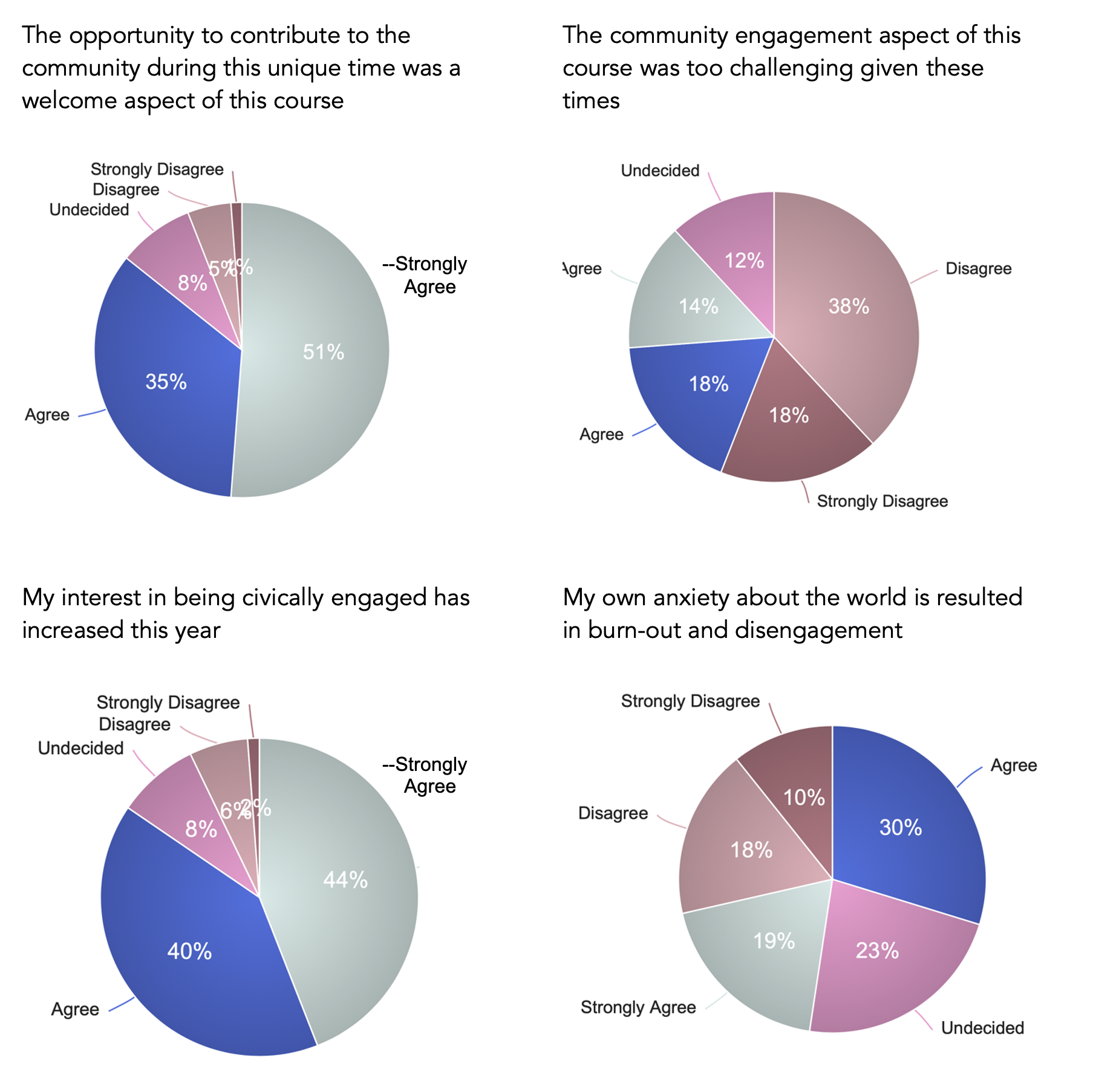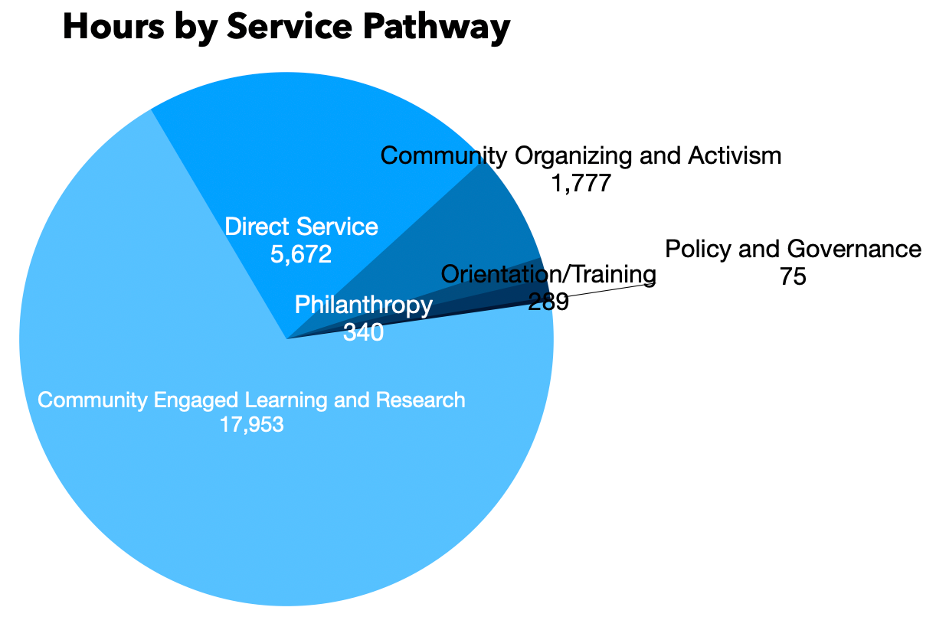2020-2021 Community Engaged Scholarship Courses: Year in Review
GW offers approximately 75 courses through which students can engage in projects with local community organizations. These experiences enhance student learning by challenging students to use course-based knowledge to understand issues in context and problem-solve. Students also improve their ability to do social perspective taking, build empathy, and gain a greater sense of civic identity.
This year, the partnerships among faculty, students, local community organizations, and our neighbors in Washington, DC grew stronger than ever, rising to the challenges of our times. COVID-19 required that GW courses and service projects occur either virtually or through indirect capacity building projects. Through inspirational adaptability and innovation, campus-community partnerships persisted.
Community Partners with GW Courses
206 community organizations had at least one GW student serving with them through a course. Below are the fifteen community partners that GW courses worked with most, based on number of students engaging in these activities and the amount of time involved.
Some of these partnerships are new, given the need for students to find ways to serve virtually or indirectly. However, most of these organizations have been long-standing partners of GW. The strength of our existing relationships was a foundation to build on, as we worked together to identify new ways for students to serve.
|
Community Partner Organization |
Students Serving |
Hours Served |
|
ARISE High School |
101 |
1706 |
|
Smithsonian Transcription Center |
97 |
1446 |
|
Latino Student Fund |
60 |
1065 |
|
Free Minds Book Club |
52 |
1206 |
|
Latin American Youth Center |
41 |
228 |
|
YWCA |
27 |
245 |
|
Little Friends for Peace (LFFP) |
22 |
455 |
|
DC Prep: Edgewood Middle School |
20 |
625 |
|
Oral History Project on National Service |
19 |
584 |
|
School Without Walls High School |
13 |
540 |
|
In the Streets |
13 |
409 |
|
US Dream Academy |
13 |
291 |
|
Common Good City Farm |
10 |
86 |
|
School Without Walls at Francis Stevens |
6 |
546 |
HEAT MAPS for all CES Courses
Pathways of Public Service
The Nashman Center examines student engagement with the community through the lens of the Pathways of Public Service model. Most course-based community engagement fits the “Community Engaged Learning and Research” pathway, through which students use the academic skills related to a course or major to help partner organizations meet their goals.
Many examples of course-based student engagement along each pathway are described here.
The 2020-2021 Community Engaged Scholarship Course Survey
Students surveyed were engaged in at least one community engaged scholarship course at GW through this academic year. 84 students from 29 courses completed the survey. The survey gathers students’ perceptions of their own learning on the Nashman Center Student Learning Outcomes, and explores the benefits and challenges of these courses.
Student Learning Outcomes
The community engagement aspect of this course contributed to…
Service During This Historic Moment
Items below related to the experience of community engagement particularly in the context of current events, including: COVID-19, increased attention on racism and policing, and threats to democracy such as voter access and protection of the right to protest safely.






